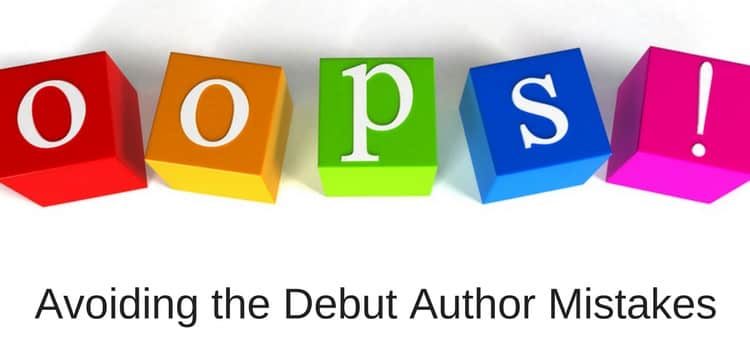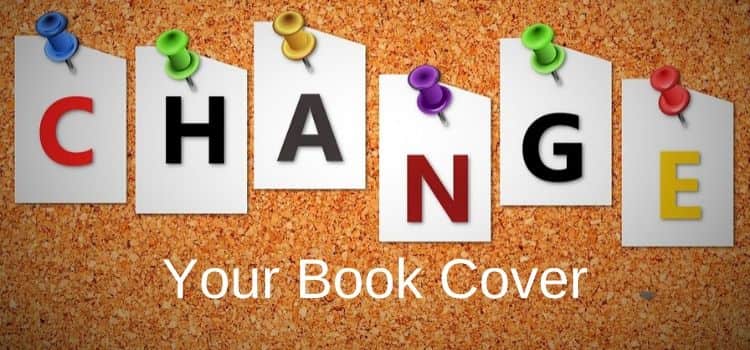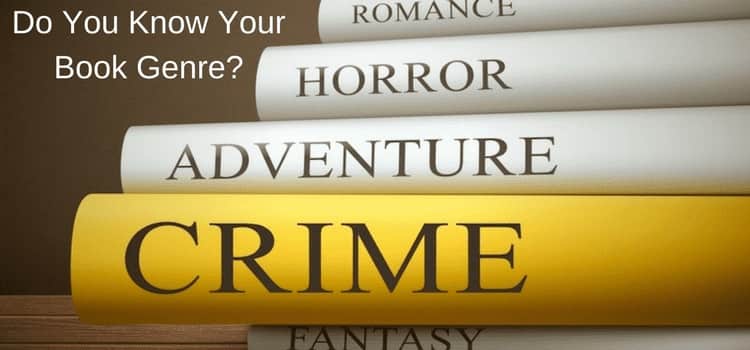
First-time author? You have finished publishing a book! Now What?
It doesn’t matter if you have self-published or have been published by a small press or publishing house; a new book release is when writers get excited, motivated, and extremely keen to start seeing a lot of book sales roll in.
Unfortunately, in their eagerness and excitement, many new writers and indie authors make silly mistakes that can have exactly the opposite effect.
Most of these mistakes can be labeled as instant sales killers, and although the intention may be positive, the actual results can be very negative. Avoiding the typical first-time author mistakes will save you a lot of time and embarrassment.
1. Don’t Bomb Social Media
Social media can be useful in marketing your book to readers.
But it is almost pointless if you have only a very small following of mostly friends and family. Bombarding your one hundred or so social contacts will quickly drive them away.
Social media is only helpful if you have a large and growing following, and even then, book promotion should only represent about 5% of what you post.
What matters and works on social media is informing, entertaining, communicating, and sharing your perspective on various topics. By doing so, you will build your following.
Social media is not about direct selling books. This is the most classic of all first-time author mistakes.
2. Don’t Write Your Book Description As An Afterthought
Your book description is the hook to get readers interested in your book, so it is vitally important that it does its job well.
A short fifty-word outline is not a book description and will give potential readers a poor impression.
It takes time to write a good book description, so take the time to do your research.
Look at popular books in your genre and study their descriptions. Or even go a step further and pay a good copywriter to do it for you.
3. Don’t Make Your Own Book Cover
Bad book covers are an instant sales killer. An amateur-looking book cover is recognizable instantly and will turn off book buyers as quickly.
Always get a professionally designed cover.
Pre-made covers cost around $40.00, so even if you are on a budget, it is money well spent. If you can spend a little more, a custom cover design is, of course, much better.
4. Do Use Amazon’s Book Promotion Tools
Most book sales on Amazon, and all other online book retailers, are generated by readers scanning, searching, and stumbling across books that interest them.
Learning to use and write your book metadata to attract book buyers is the most powerful means of gaining book sales.
Well-written metadata is more important than any other form of book promotion. So spending the time to learn how to improve a book’s metadata is critical in gaining book sales.
Pay special attention to your choice of Amazon categories and keywords.
Amazon provides many book promotion tools, so use them to help you promote your book more effectively.
5. Do Use Amazon Author Central
If your book is listed on Amazon, using its Author Central Author Page is an absolute imperative. Many new authors don’t even know about this Amazon service.
From an Author Central page, an author can add even more metadata, modify book descriptions, add editorial reviews, and back and front flap text.
All of these tools make your books on Amazon much more discoverable.
6. Don’t Add Lists of Book Buy Links
Sure, you have to let people know that you have a book to sell.
But adding a long list of book buy links to Amazon, Apple, B&N, Smashwords, your publisher, and any retailer with your book is a huge turn-off and makes it look like you are desperate.
First-time author mistakes like this can make you look like an amateur.
One buy link is always more than enough, and even then, if someone is genuinely interested in your book, they will find it by using Google Search or retailer search.
Use a universal book buy link rather than making a long list of retailer links.
7. Do Blog!
In the long run, blogging is the best way to show off your writing talents, engage with people, exchange comments, build a true author following, and increase your social media following.
Two intelligent blog posts per week can do more for your book sales than spending money on paid Facebook advertising.
However, make sure your writing is absolutely perfect for your blog post.
If you are blogging regularly, you should consider using a premium online grammar checker to make certain your content is top-notch.
8. Don’t Ever Write ‘Buy My Book’
Desperate calls to ‘check out my book,’ buy my book,’ ‘follow me on Facebook,’ and ‘here’s a free ebook for you,’ all have a negative effect.
How do you react to imperative phrases and orders like these?
No one buys a book because you tell them to do so.
9. Do Be Patient
Okay, you want to be a bestselling author; well, believe me, it won’t happen overnight.
Writing and selling books and ebooks is a long-term occupation, and success, even modest success, usually starts to happen only once you have a few books on your backlist.
So calm down, stop checking your book sales five times a day, and, instead, write your next book.
10. Do Learn To Learn
Like any other occupation, the more you learn, the better you become.
Find experienced authors and follow their blogs and subscribe to sites offering writing or book marketing advice.
Self-publishing especially involves a long and steep learning curve, so never stop learning.
One of the most important lessons is that not everyone will like your book.
In fact, it will be of interest to very few people.
Your book will have niche appeal, so learn to connect with people who share an interest in your book’s genre or topic.
You will never sell a book on How to Cook The Best Steaks to a vegetarian, nor a cozy romance to a reader of war novels.
Get to know your market and write and publish for your niche readership.
11. Don’t Give Up!
With self-publishing, a book never goes out of print now, so never give up on it or yourself as a first-time author.
You can always improve it, modify it, change the cover, write a new book description, or un-publish it and do a complete edit, add a new title, and re-publish.
Also, the more you write, the better you get, so keep trying, keep working on avoiding common writing mistakes, and keep learning, and over time, you may find that success comes your way.
Always remember that the harder you work, the luckier you get.
Related Reading: 17 Book Marketing Ideas You Can Do In Under 90 Minutes
Share This Article



Excellent advice that covers all the bases, though I might venture to suggest that you can tackle creating your own cover if you do have some solid design skills. Don’t use copywrite free images from the Internet, instead use a decent photo in high resolution you’ve taken yourself and make a mock up in Canva. Ask others for their opinion on it. Once you’ve published put it on Pinterest and add a link to your book. As you mention at the end, if the cover isn’t working you can always change it.
Great advice, Felicity. A good camera and Canva make a good team for book covers.
This info is crucial in the self publishing world. Too many times authors want to just grab the title and sit back and enjoy the benefits of collecting your coins but are shocked when no coins hit the table outside of your friends and family who showed up and bought your book only because they know you. Love the content on this site I’ll be sharing as much as I can.
This article and this whole website is great. However, I disagree with the blogging 2 articles per week suggestion or the direction to blog at all for that matter. As a fiction writer, I don’t have a lot to say in the form of a non-fiction blog that hasn’t been repeated ad nauseum by any number of others out there. Trying to come up with a blog that ultimately is really just a promotion for your book results in boring blogs that smack of self-promotion. Readers will see that from a mile away. My blog posts sucked. So why pour energy into something I’m not good at when I could be focusing on more writing material?
J
Great advice, thank you! I’ll confess to making some of these mistakes already…
Outstanding article. Thank you.
Very interesting and quite important an Article/Blog-post this is! And it is also written truly “brilliantly” as one commentator ‘Andrew Purdum’ said here. A salient point I always appreciate about your pointing to here, is that there is an implicit message going to the Reader’s mind, out of each behaviour and text by the Author, in this phase of the latter’s business. The Author can’t order; they can just encourage. So the approach should be gentle, indirect, rather quite informal. And to do so, PATIENCE is truly a virtue here. The reader can very subtly detect if the Author is desperate or not! Any little fluctuation in the Social media or elsewhere online behaviour/speech is enough to reveal this state of the Author’s mind. So the best approach is to be patient enough first! Thus altering the very mental state beforehand! And then practising all the necessary techniques to communicate with the Buyers. Like giving at least ONE link and attracting them through OTHER writings/posts/etc and reminding them about the Book somewhat OCCASIONALLY.
Thank you for this. Really insightful and by someone who has been there which makes it even more worth listening to. I shall try and be patient and get back to my netbook so to do more writing
Good luck, Rebecca!
This is an excellent list! Indeed, many of these amateur mistakes drive away potential sales. I would add one: if you are self-publishing – and even if you aren’t – do invest in an editor. Nothing annoys readers more and brings more bad reviews than a badly-written book full of spelling and grammatical errors.
I’ve been in print publishing for a coon’s age, and I’ve never seen a truly professional designer who would do a cover for forty bucks. Maybe someone who’s still in school?
Agree 100%. But even a $40 pre-made is better than a tacky home made cover. Luckily though. I am seeing a lot less of these now, so I think new authors are learning. But not all.
Brilliant! These are wonderful tips. So often, authors forget it’s a long term plan. Nothing happens overnight. I remember when I published my first book it took a long time to get decent sales. It all boils down how hard we’re willing to work, who our audience is, and if we’re crafting content that’s designed for the audience in mind. You talked about having a blog, and I couldn’t agree more. People are attracted to people. Blogs provide a great place for you to develop a community!